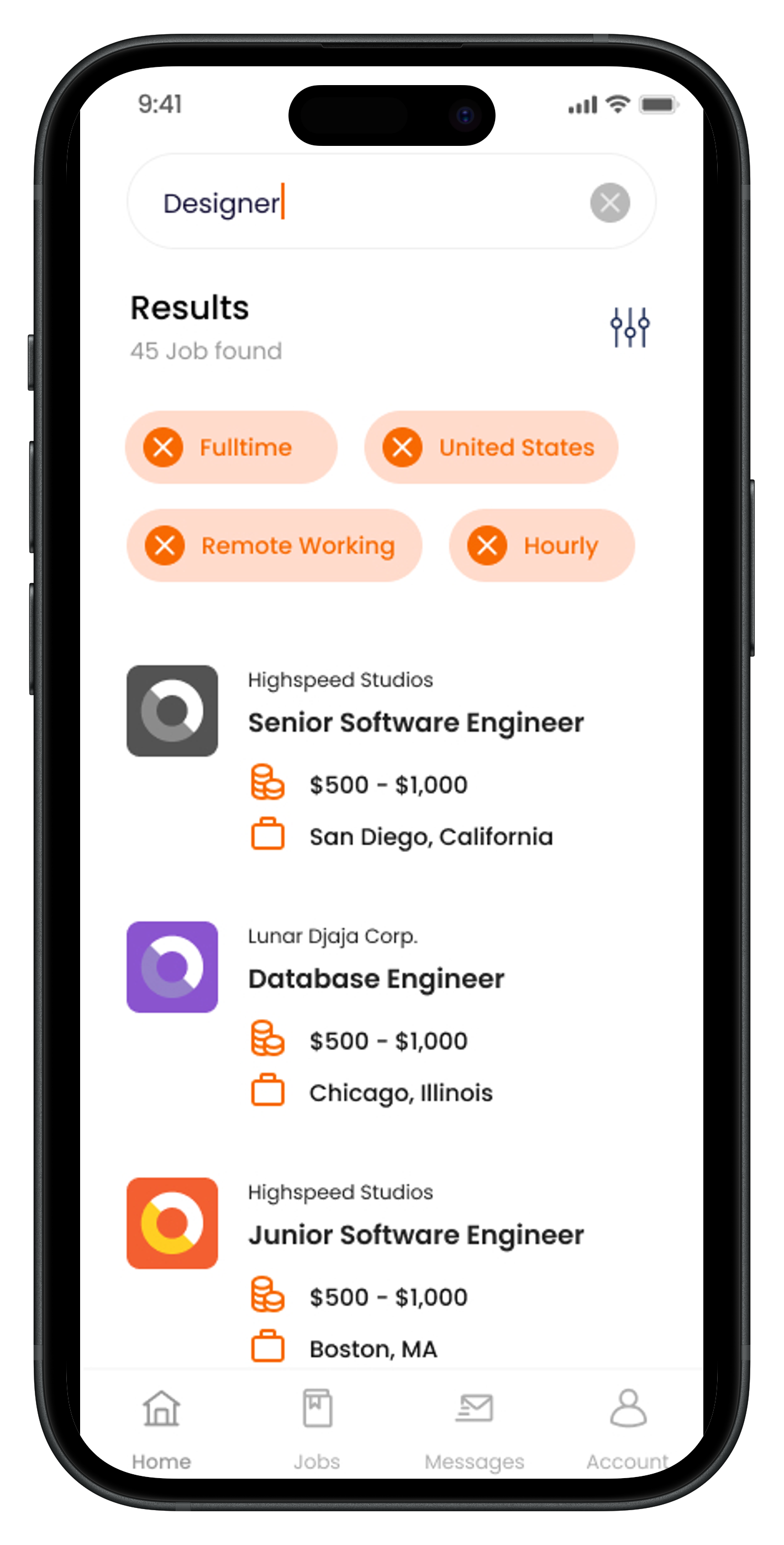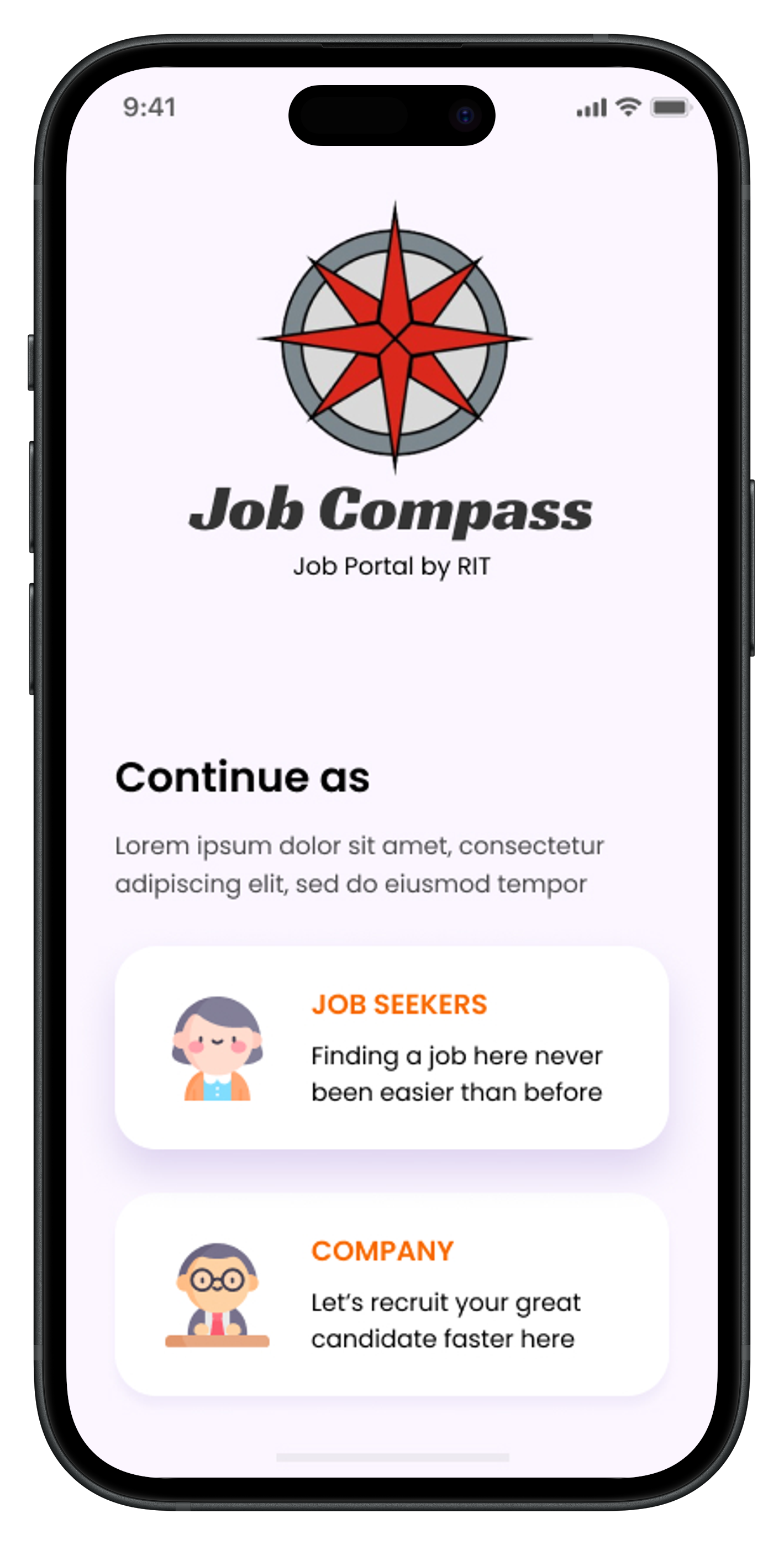Job Search Onboarding Prototype
A personalized, accessible onboarding experience for job seekers, designed to simplify profile setup and job matching through an intuitive Figma prototype.
Role: UX Designer
Tools: Figma, Google Forms, Pen & Paper
Timeline: March–May 2024
Deliverables: Interactive prototype, high-fidelity UI, usability testing insights
The Challenge
Many job platforms overwhelm users with cluttered interfaces and unclear setup processes. This project aimed to streamline onboarding by focusing on personalization, accessibility, and clarity — especially for users with varied digital experience levels.
Goals
Create a clear and frictionless onboarding experience
Personalize job recommendations early in the process
Validate decisions through testing and iteration
Design Process
Step 1 – Research & Insights
Explored common onboarding challenges across job platforms, focusing on user expectations around simplicity, personalization, and accessibility. Competitive analysis and UX research informed key opportunities for streamlining the user journey.
Step 2 – Wireframing & Structure
Developed low-fidelity wireframes to establish a clear and logical flow through profile setup, skills assessment, and job preference selection. Early wireframes emphasized clarity and minimized cognitive load.
Step 3 – High-Fidelity Prototyping
Built out polished UI components in Figma using consistent layout, visual hierarchy, and accessibility-minded design choices. The interface was optimized for readability and mobile responsiveness.
Step 4 – Usability Testing
Conducted user testing to evaluate clarity and engagement. Insights from testing guided multiple iterations focused on reducing hesitation, refining copy, and improving overall flow.
Step 5 – Peer Review and Presentation
Presented the full design and user flow to peers for review. Incorporated their feedback to make final refinements.
The Solution
Simple account creation
Dashboard to display job recommendations to users
Messaging feature to communicate with employers and peers
Key Screens
Outcomes
Provided a significantly smoother onboarding experience by reducing cognitive load.
Enabled users to complete the process with minimal friction.
Iterative testing showed improved task completion rates.
Received positive qualitative feedback around ease of use and personalization.
What I Learned
This project deepened my understanding of balancing clarity and depth in onboarding flows. I learned how small tweaks, such as clearer button labeling or reordered steps meaningfully improve user experience. The project emphasized the importance of clear structure and intuitive flow in creating a smooth user experience.





